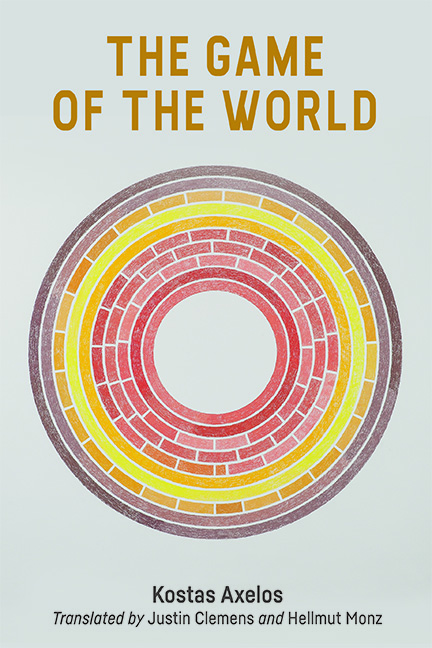Book contents
- Frontmatter
- Contents
- Translators’ Introduction
- Prelude
- Opening. The Great Powers and the Elementary Forces of the World
- I Logos. The Language and Thought of Man and the World
- II That. The Play of the Being in Becoming of the Fragmentary and Fragmented Totality of the Multidimensional and Open World
- III God-Problem
- IV Physis. The Cosmic World
- V The Human in the World
- VI World History
- VII The World of Poetry and Art
- VIII Being-Nothingness, Everything-Nothing, the Unworldly World
- IX The Game of the World
- Notes
- Analytical Table
VIII - Being-Nothingness, Everything-Nothing, the Unworldly World
Published online by Cambridge University Press: 17 November 2023
- Frontmatter
- Contents
- Translators’ Introduction
- Prelude
- Opening. The Great Powers and the Elementary Forces of the World
- I Logos. The Language and Thought of Man and the World
- II That. The Play of the Being in Becoming of the Fragmentary and Fragmented Totality of the Multidimensional and Open World
- III God-Problem
- IV Physis. The Cosmic World
- V The Human in the World
- VI World History
- VII The World of Poetry and Art
- VIII Being-Nothingness, Everything-Nothing, the Unworldly World
- IX The Game of the World
- Notes
- Analytical Table
Summary
We live in a world of ruined concepts, used-up words, emptied conceptions of the world. We live in – and we build – agitated necropolises, we populate and mobilise deserts. All horizons seem blocked, and the very question of the horizon becomes enigmatic. We nevertheless continue to live and work in this world, much more solid than it seems, since it supports its shocks, digests its crises, assimilates negativities, marches towards its future. The movements which we see deployed before our eyes and in which we participate drag us along their errant course. In our heroic moments, we pretend to revise everything. Before any revision, however, before any foundation of a new ‘vision’ of things and the world, we must manage to grasp what prevents us from seeing the conquering surge of nihilism, revising all that blocks our view. The revision of what is, that does not take into consideration the process of annihilation ceaselessly unfolding, fails its mission. We can no longer speak innocently or cunningly of things which ‘are’ no longer, which have entered another phase. We do it anyway. Nihilism constitutes the problem of the planetary world, which knows neither on what it is founded, nor where it is going. Nihilism is not an error, an aberration, a fault, an illness; it is no point of view, no theory, no psychological disposition; it does not characterise this or that particular state of things. Nihilism begins to englobe all that is and is done. To speak about it, in the world of the fragmented totality, is extremely difficult. Whether one deplores or rejoices in it: it seems that only fragmentary and aphoristic systematics could dare the adventure.
We live in a world where all mystical impulses are consolidated in Churches, all revolutionary movements in bureaucratic States, all researches of thought in sclerotic Universities, all the adventures of human existence in an autarchic and hypocritical Family. Petrified and putrefied, Churches and States, Universities and Families continue to be the institutions that administer human lives, force them to conform, lead the renegades and the excluded to their loss.
- Type
- Chapter
- Information
- The Game of the World , pp. 381 - 400Publisher: Edinburgh University PressPrint publication year: 2023



